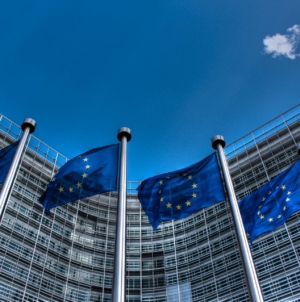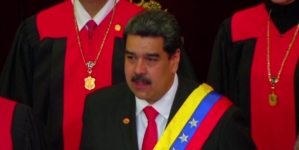-
Szijjarto: EU’s weak interest representation ‘historic sin of Brussels bureaucrats’ - 6 mins ago
-
Mets’ Kodai Senga Exits First Start of Season With Injury - 10 mins ago
-
Fresno County man sentenced for sexually assaulting children, dog - 18 mins ago
-
Austin FC's Gyasi Zardes finds the back of the net in 45' to take a 2-0 lead over Pumas - 23 mins ago
-
Gulyas: Ukraine ‘blackmailing’ countries in favour of peace talks - 39 mins ago
-
How to Watch Men’s Tennis at the 2024 Paris Olympics: Streams, Schedule - 49 mins ago
-
Photos: Paris is the backdrop for a colorful Olympics opening ceremony - 59 mins ago
-
Jordan Love, Packers reportedly agree to 4-year, $220 million extension - about 1 hour ago
-
A pivotal election looms over Venezuela as fear for free and fair polls grows - about 1 hour ago
-
NASCAR News: This Is Where Corey LaJoie Could Go After Spire Motorsports Exit - about 1 hour ago
Future of automotive sector lies in e-vehicles
Marton Nagy, the national economy minister, on Tuesday met Hui Zhang, the deputy head of Chinese-owned NIO Europe, and visited NIO’s Global Design Centre in Bavaria, the national economy ministry said on Tuesday.
Nagy said that Hungary had a vested interest in a strong and competitive European e-vehicle industry. He said an important development further boosting demand for e-vehicles, including second-hand cars, would be making batteries replaceable. Hungary’s government is monitoring NIO’s developments with interest as they contribute to long-term sustainability, Nagy said, pointing to one of the company’s priority projects to develop battery exchange stations.
Hungary is striving for partnerships based on mutual respect with all players, including German and Chinese companies, Nagy said.
Accordingly, Hungary doesn’t see tariffs on Chinese e-vehicles as a solution to the difficulties of the European car industry. The solution lies in boosting European competitiveness rather than protectionism, he added.
Cooperation with German companies fruitful
Nagy is heading a delegation on a visit to Germany, where he met Hubert Aiwanger, the deputy prime minister of the federal state of Bavaria, and Eric Beisswenger, the federal state’s minister for European and international affairs, the ministry said in a statement. The talks focused on Hungarian-German and Hungarian-Bavarian economic cooperation, and European competitiveness and economic outlook, the statement said.
Nagy noted that Germany was the largest investor in Hungary, with 18.7 billion euros in investment capital linked to German companies. “Contrary to unfounded statements, Hungary is a democracy where legal certainty, a reliable economic and legal environment and one of the most competitive tax systems await investors. The domestic business and corporate environment also ensures significant advantages. Investments in Hungary are also lucrative, as the profit rate on direct capital investment is over 9 percent, which puts the country among the top 10 countries worldwide,” he said.
Cooperation with German companies has been tight and uninterrupted in the vehicle industry, retail, telecommunications and military industry, he said.
Nagy noted that there had been “conflict” in cooperation with concrete companies “as the companies in question have abused their position of power”. “Then the problem was escalated in the international arena, making it seem larger and wider than it is, to show Hungary in a bad light,” he said.
German companies employ some 220,000 people in Hungary, the ministry said.
Germany is also Hungary’s largest trading partner, with Bavaria accounting for 26 percent of it, Nagy said. Bavaria gives 35 percent of German exports directed to Hungary, and 16 of Hungary’s imports to the country are flowing to the state, the minister said. Fully 27 percent of investments from German companies in Hungary come from Bavaria.
Source link































